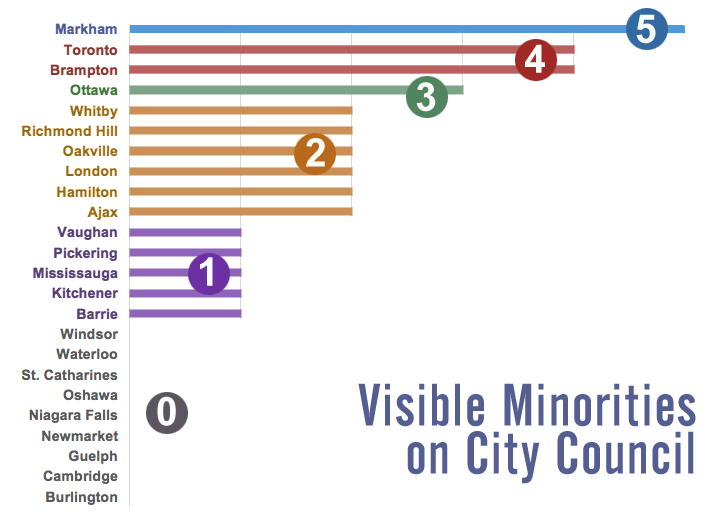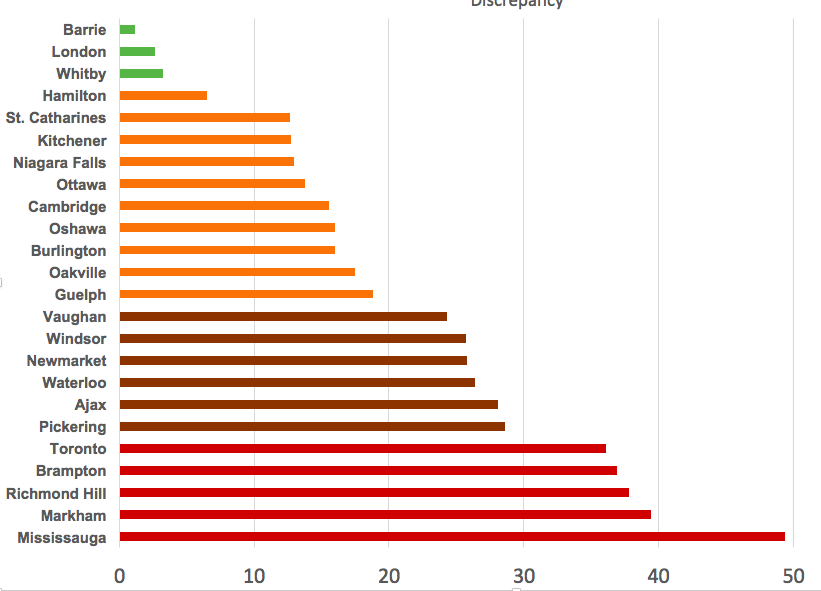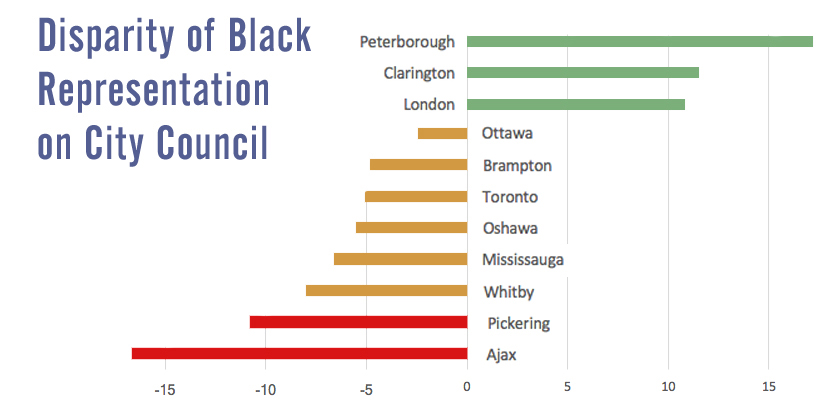I’m working on a project called the Municipal Democracy Index, ranking Ontario’s largest cities based on a series of quantifiable metrics related to how power is shared / distributed and the degree to which local democracy is accessible, responsive and representative...
I’ll be releasing bits of data throughout the summer, and then the final aggregated rankings in the fall. Today's installment takes a look at one specific data set: The disproportionate over-representation of white voices on our city councils. #CouncilSoWhite
Here’s the simplest way to visualise the data: a ranking of how many non-white councillors are on each city council:
Using that chart, @cityofmarkham, @CityBrampton and @cityoftoronto appear to be leading the pack. But...
... that’s not really a constructive way to look at the data, since the actual population of visible minority residents varies widely between each municipality. Sudbury, for example, has less than 4% visible minority population while Toronto has over 50% and Markham has 78%.
A city council with fair representation in Brampton should look quite different than a representative council in St Catharines. Just like a proportionately diverse Parliament in Canada would look nothing like one in, let's say, Iceland.
So, here’s a more interesting approach. This chart looks at the disparity between the actual visible minority representation in the general public (2016 Census) VS their representation on City Council (2018 elections):
As you can see, the rankings change dramatically from the first chart. Cities that seem to have high levels of diverse representation actually have some of the worst rates in the province. Also note: They ALL have under-representation of People of Colour. All of them.
Using the same methodology, here’s a ranking specifically for Black representation (looking at cities that have more than 10% Black population and/or any elected Black councillors):
If we want to see real change on crucial policy issues that perpetuate systemic racism, then we need to look at our governing bodies. Who’s at the table - and who isn’t?
Some folks no doubt will read this and say “Does race really matter for a City Council.. as long as they are good people?” or “Can’t white people make good decisions?”. The best answer I’ve heard on this topic was from @ArmineYalnizyan. She said:
"An important question to ask is 'why do you want diversity on a corporate board or at a public policy table?' It’s not because people have different answers; it's because people have different questions.” Yesss. So brilliant. Different questions. She continues:
"Inclusive economics helps you see the world differently. With inclusive economics, you’re going to get a whole bunch of perspectives asking questions that start reflecting the world with the diversity that exists, and asking how to make the real world work better.”

 Read on Twitter
Read on Twitter




